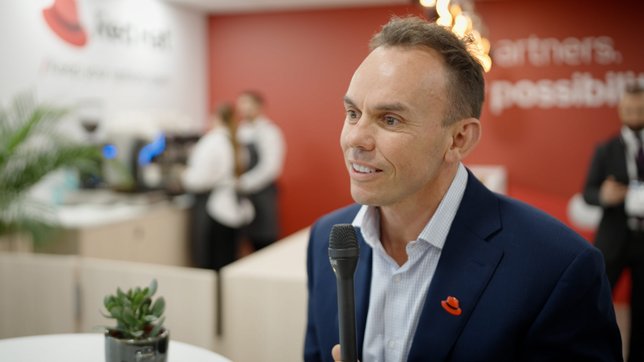Exclusive Video: The Digitalisation & Decarbonisation Forum
Digitalisation has the potential to enable businesses and industries to reach new levels of efficiency and sustainability, unlocking opportunities for decarbonisation. In this panel discussion at Tech LIVE Virtual, leading experts discuss the intersection of digitalisation and decarbonisation, highlighting the latest trends in clean technology and the role of digitalisation in driving the clean energy transition.
In this exclusive conversation, our panelists, Paul Wrighton, Director of Sustainable Infrastructure at Johnson Controls, Simon Tucker, Global Head of Energy, Utilities & Resources at Infosys Consulting, and David Pownall, VP of Services & Safety UK at Schneider Electric, explore the impact of digital technologies such as cloud computing, AI, and blockchain on sustainability, and share insights on how businesses can leverage these technologies to reduce their carbon footprint.
The Digitalisation & Decarbonisation Forum
As our panelists describe, there is a strong link between digitalisation and the need for decarbonisation.
“There's a very strong link, and I think it's actually crucial if we are to meet [decarbonisation] objectives,” Wrighton asserts. “For us at Johnson Controls it is really about the built environment. We believe that buildings represent the biggest and the quickest win, both now in terms of reducing energy but also in the future.”
As Wrighton explains this goal will be achieved through three innovations: energy efficiency, electrification and digitisation.
“Digitisation is the glue that brings it all together,” he says. “That means you can harmonise technology and solutions in an ecosystem that really drives that value, that change and that energy efficiency and carbon reduction.”
Pownall agrees. “The digital piece is the bit that makes it stick. You're going to do a lot of heavy lifting if you try and do it manually, you're never going to optimise, you're never going to be able to refine, you're never going to be able to improve and make those aggregated marginal gains year on year.
“If you particularly think about the existing building stock, whether that's in Ireland, UK or anywhere else in the world, most of it is about retrofit, or renovation, or refurbishment. New builds that really are going to make the big difference, not unless we bulldoze everything. So the digital link is essential in making sure that we can make it stick.”
As Tucker describes, with a multitude of energy and power mixes, digital tools are the glue that helps stick the whole picture together.
“If we look at, for example, renewables, we need to be able to store them. We need to be able to push the grid at the right time. And digital technologies are really driving those core trends.
“If we look at it from an oil and gas point of view, whenever we can increase the production efficiency by 10% - using a lot of digitisation tooling such as AI and digital twins, for example - we reduce emissions intensity by 4%.
“We're seeing those real time digitisation gains in actual decarbonisation, and we're measuring it. We know it's working. And in building and infrastructure as well, we're able to measure it now, so we know that it works.”
To watch any of our other speakers from Tech LIVE Virtual, click here.
- Flexential: Momentum Report Highlights Hybrid IT InnovationCloud & Cybersecurity
- Dell Technologies: Firms Expect AI to Transform IndustriesAI & Machine Learning
- Coca-Cola & Microsoft Partner to Accelerate Cloud and Gen AICloud & Cybersecurity
- Microsoft, AWS & Oracle: Why Big Tech is Investing in JapanDigital Transformation




